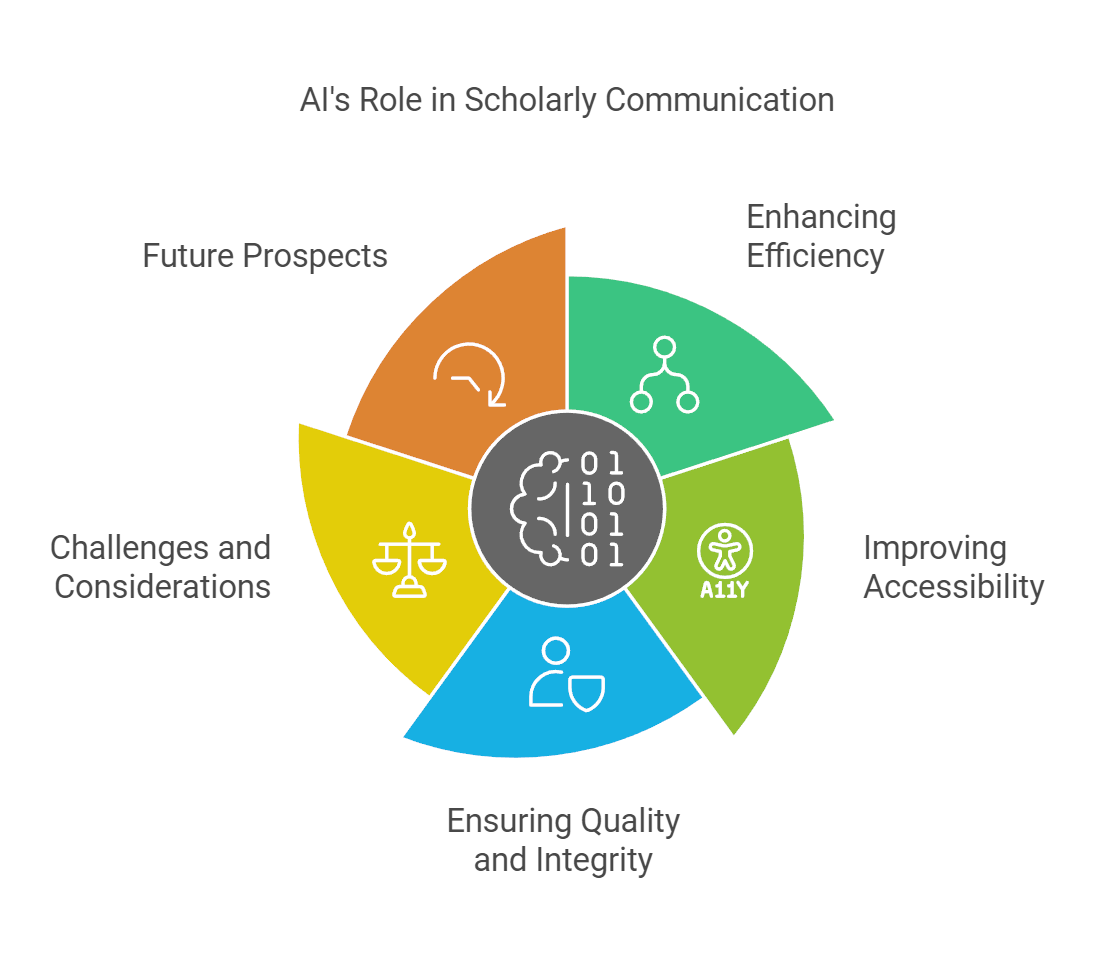
Source: https://answerthis.io/blog/the-impact-of-ai-on-academic-publishing-and-knowledge-dissemination
The article “The Impact of AI on Academic Publishing and Knowledge Dissemination” explores how artificial intelligence (AI) is transforming scholarly communication. Key insights include:
1. Enhancing Efficiency
- Automated Processes: AI streamlines manuscript submissions, peer reviews, and editorial tasks, reducing time and human error.
- Content Generation: AI tools assist in drafting articles, summarizing research, and translating texts, aiding authors and editors.
2. Improving Accessibility
- Open Access Support: AI facilitates the dissemination of research through open-access platforms, broadening public reach.
- Language Translation: AI-powered translations make scholarly works accessible to non-native speakers, promoting global knowledge exchange.
3. Ensuring Quality and Integrity
- Plagiarism Detection: AI systems identify duplicate content, maintaining originality in publications.
- Data Analysis: AI evaluates research data for accuracy, enhancing the reliability of published findings.
Challenges and Considerations
- Ethical Concerns: The use of AI in content creation raises questions about authorship and intellectual property rights.
- Bias and Fairness: AI algorithms may inadvertently perpetuate biases, affecting the objectivity of scholarly communications.
Future Prospects
- Personalized Content: AI can tailor research recommendations to individual interests, improving information relevance.
- Collaborative Research: AI fosters interdisciplinary collaboration by connecting researchers with complementary expertise.
In summary, AI significantly enhances efficiency, accessibility, and quality in academic publishing. However, addressing ethical challenges is crucial to fully realize its potential in knowledge dissemination.







